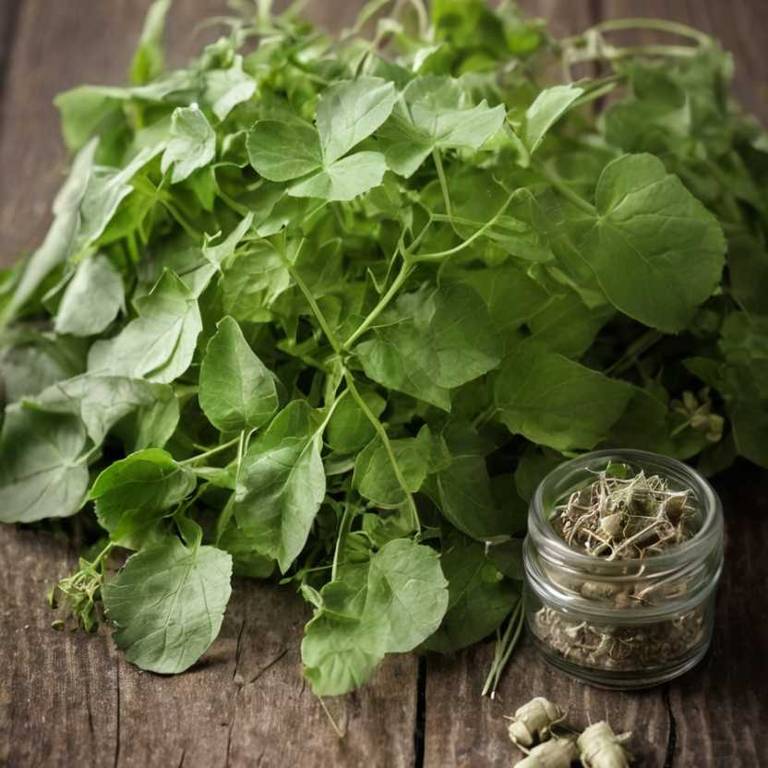10 Best Tilia Cordata Health Benefits

Tilia cordata, commonly known as small-leaved linden, offers a variety of health benefits due to its rich content of bioactive compounds such as flavonoids, tannins, and mucilage.
It has been traditionally used to alleviate symptoms of respiratory conditions like coughs and bronchitis because of its expectorant and anti-inflammatory properties. The flowers of Tilia cordata are often used to make teas that can help soothe headaches and reduce fever, thanks to their mild sedative and antipyretic effects. Additionally, the tree's bark and leaves contain compounds that may support digestive health by reducing inflammation in the gastrointestinal tract.
Overall, Tilia cordata is valued for its calming effects and its potential to support immune function and overall well-being.
1. Reduces stress
Tilia cordata reduces stress by promoting a calming effect on the mind and body.
The plant contains compounds that may help lower cortisol levels, which are associated with stress. Its use in aromatherapy or as a herbal supplement can support relaxation and emotional balance. Tilia cordata is often used in traditional medicine to alleviate anxiety and promote a sense of well-being.
Incorporating Tilia cordata into daily routines may contribute to managing stress more effectively.
2. Enhances mood
Tilia cordata enhances mood by promoting a sense of calm and relaxation.
The plant contains compounds that may help reduce stress and anxiety, contributing to improved emotional well-being. Its use in traditional medicine suggests it has a positive impact on mental health. Tilia cordata is often used in aromatherapy and herbal remedies to uplift spirits and ease emotional distress.
Regular interaction with Tilia cordata, such as through its essential oils or in natural settings, can foster a more balanced and positive emotional state.
3. Aids immunity
Tilia cordata aids immunity by containing bioactive compounds that support the body's natural defenses.
These compounds, such as flavonoids and tannins, help reduce inflammation and enhance the activity of immune cells. The tree’s leaves and flowers are traditionally used in herbal medicine to promote respiratory health and prevent infections. Regular consumption of Tilia cordata extracts may improve the body’s ability to fight off pathogens.
Overall, it serves as a natural supplement that contributes to a stronger and more resilient immune system.
4. Boosts energy
Tilia cordata boosts energy by supporting metabolic functions through its rich content of essential nutrients and bioactive compounds.
The plant contains compounds that may enhance cellular respiration, helping the body produce more ATP, the primary energy currency of cells. Its traditional use in herbal medicine often includes promoting vitality and reducing fatigue, making it a natural aid for those seeking increased energy levels. Additionally, Tilia cordata may help regulate the nervous system, contributing to a sense of calm while enhancing overall physical endurance.
This makes it a valuable herb for individuals looking to improve their energy levels naturally.
5. Boosts digestion
Tilia cordata boosts digestion by promoting the healthy function of the gastrointestinal tract.
Its natural compounds help stimulate the production of digestive enzymes, which enhance the breakdown of food and improve nutrient absorption. The plant also has mild laxative properties that can alleviate constipation and support regular bowel movements. Additionally, Tilia cordata may reduce bloating and gas, contributing to a more comfortable digestive experience.
Incorporating Tilia cordata into a balanced diet or herbal regimen can be a beneficial way to support overall digestive health.
6. Improves sleep
Tilia cordata improves sleep by promoting relaxation and reducing anxiety, which are key factors in achieving restful nights.
The plant contains compounds that may influence the central nervous system, helping to calm the mind and ease the transition into sleep. Studies suggest that its mild sedative properties can enhance the quality of sleep without causing dependency or significant side effects. Tilia cordata is often used in herbal remedies for insomnia and sleep disorders, supporting natural sleep cycles.
Incorporating Tilia cordata into a bedtime routine may offer a safe and effective way to improve overall sleep health.
7. Supports heart
Tilia cordata supports heart health by providing essential nutrients that contribute to cardiovascular function.
The tree's leaves contain flavonoids and antioxidants, which help reduce oxidative stress and inflammation in the cardiovascular system. These compounds may improve blood vessel function and lower the risk of heart disease. Additionally, Tilia cordata has been traditionally used in herbal medicine to promote circulation and ease symptoms of heart-related conditions.
Its calming properties may also help reduce stress, which is a known risk factor for cardiovascular issues.
8. Strengthens bones
Tilia cordata strengthens bones by promoting the growth and density of bone tissue through its rich content of bioactive compounds.
These compounds, including flavonoids and phenolic acids, have been shown to enhance bone mineralization and improve overall skeletal health. The plant's natural compounds may stimulate osteoblast activity, which is essential for bone formation and repair. Regular consumption of Tilia cordata may help prevent bone-related conditions such as osteoporosis.
This makes Tilia cordata a valuable natural remedy for maintaining strong and healthy bones.
9. Promotes calm
Tilia cordata promotes calm by calming the nervous system and reducing anxiety.
Its calming effects are attributed to the presence of bioactive compounds such as flavonoids and mucilage, which have soothing properties. This tree is often used in aromatherapy and herbal remedies to help alleviate stress and promote relaxation. The gentle scent of Tilia cordata is known to create a serene atmosphere, making it beneficial for mental well-being.
Incorporating Tilia cordata into one's environment or using its derivatives can support a sense of peace and emotional balance.
10. Clears skin
Tilia cordata clears skin by promoting a balanced complexion through its anti-inflammatory and antioxidant properties.
The tree's leaves contain compounds that help reduce redness, acne, and other skin irritations. It supports skin health by soothing sensitive areas and preventing breakouts. Regular use of Tilia cordata-based products can lead to a more radiant and even skin tone.
This natural remedy is particularly beneficial for those with oily or acne-prone skin.